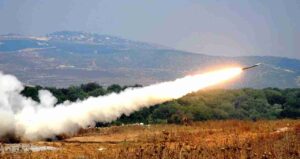Locations Affected: Venezuela
President Maduro’s Re-Election Confirmed by Venezuela’s Supreme Court
On 22 August, Venezuela’s Supreme Court confirmed President Nicolás Maduro’s re-election amid allegations of vote fraud from the 28 July election. Nicolás Maduro, who has been in power since 2013, is set for another six-year term. The National Election Council (CNE) claimed Nicolás Maduro won with 52 percent of the vote but did not release detailed results. The opposition published its own tally, showing González Urrutia as the likely winner.
The responses to Supreme Court’s decision on Maduro’s Re-Election
Since Nicolás Maduro was declared the winner of the presidential election, Venezuela has experienced widespread anti-government protests, resulting in at least 27 deaths and over 190 injuries. Public discontent stems from severe economic hardship and political repression under him. Similar protests occurred in 2014, 2017, and 2019, but failed to remove him from power.
In response, the government has arrested opposition figures and protesters, investigated opposition leaders for allegedly inciting military crimes, enacted stricter NGO regulations, and forced resignations of pro-opposition state employees. Venezuelans abroad have also protested against the President in countries such as Japan, Australia, Mexico, and South Korea.
The responses to Supreme Court’s decision
- Supreme Court President Caryslia Rodríguez announced that the decision was based on material from the CNE and is thus final, with no option for appeal. The court has not released detailed voting data.
- The opposition has rejected the verdict. The UN Human Rights Council (UNHRC) has questioned the court’s impartiality, citing undue government influence and Caryslia Rodríguez’s ties to President Maduro’s ruling party. The decision has also faced international criticism from countries like Chile, Uruguay, and Guatemala.
The repercussions of the Supreme Court’s ratification of Maduro’s Re-election
The disputed Venezuelan election has led to the severing of diplomatic ties with eight Latin American countries, including Argentina, Chile, Costa Rica, and Peru, due to questions raised about the election, along with the widespread unrest. The court’s decision is likely to exacerbate the crisis, increasing concerns about ongoing protests and escalation and reported political repression. Protests may be expected to continue globally, particularly in countries with large Venezuelan migrant populations such as Colombia, Peru, Mexico, Portugal, and Spain. If there is prolonged unrest, it could worsen the economic and emigration crisis in the country. Heightened security measures can be anticipated near government buildings and transport hubs, including the presidential palace in Caracas. Organizations should stay aware of the situation and prepare contingency plans.






